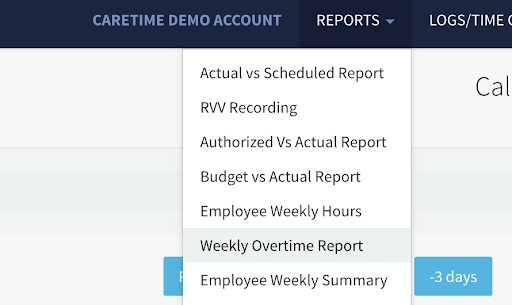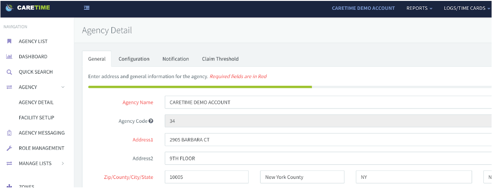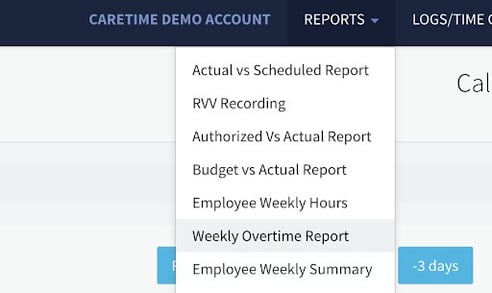Overcoming Overtime Costs in Home Care

In states where overtime pay is enforced by law, you may see that your staffing costs are racking up to an unfortunate amount. This is due to one simple factor, it is difficult to manage schedules to ensure that no one is going over their 40 hours. Calculating hours manually seems like the simple solution until you realize that would cost you a significant amount of administrative time, again creating another unnecessary expense for you.
The Negative Impact of Overtime in Healthcare
Not only is overtime causing damage to your bottom line, it is also linked to:
- Increase in errors
- Threats to patient safety
- Declining patient satisfaction
- Employee fatigue and burnout
- Depressed staff morale
- Rising turnover
A burnt out staff is an unhappy staff. If your employees feel overworked then they may choose to work somewhere else.
Questions to Ask Yourself Regarding Overtime
- How is your staff impacted by overtime (mentally/ physically)?
- How much are you spending on overtime each: week, month, quarter, year?
- Could those expenses been avoided?
- Is there a more efficient way to solve my overtime issue, rather than counting hours manually?
- How is it possible to keep track of hours worked by your many employees?
Cutting Hours is Not the Solution
You may be tempted to cut back all staffing hours to reduce costs. With new laws in place requiring companies to pay overtime, there have been less than desirable results. Caregivers and clients alike have been impacted negatively. Home care companies have been cutting hours in order to not incur extra costs, creating a shortage of workers in some states. Employees are not making enough money to make ends meet and clients are not getting the help they need. The best solution is to implement a schedule that distributes hours effectively, allowing employees to work for the number of hours they need while cutting down unnecessary overtime.
Automate Your Watch of Overtime Hours
You don’t have to wait until after overtime is booked to deal with it then. There are tools available to help you watch your overtime and adjust schedules if needed. For example, in CareTime’s configurations, you can set a threshold of the number of hours a caregiver can work before you are alerted that they are about to or have gone over overtime. First, you would go into your agency settings, and then click on the “Configuration tab”.
Scroll down to where you see Overtime Alert, Yes/No. Once you click yes, you can choose the number of hours that a caregiver can work before you get alerted of getting close to overtime. If I want to be conservative, I’ll go with 35 hours (or 5 hours before hitting overtime). I’ll receive a text, email, or both when a worker has worked 35 hours in a week. Additionally, you can set up supervisor alerts for the specific zone.
- Overtime Alerts come in:
- Text
- In-Application alerts
- Can go to specified supervisors or employees in a specific zone
Another way to keep tabs on overtime hours is the built-in Weekly Overtime Report and Employee Weekly Hours Report. This will allow you to frequently check on overtime hours, and make changes to schedules or adjust how your shifts are scheduled in the future.
CareTime is Here to Solve Your Scheduling and Overtime Issues
CareTime is a home care software solution that makes it easier to run your business. Scheduling caregivers and clients have never been more simple. You can fill shifts through our quick scheduling message, instead of calling caregivers individually. Set alerts for when your staff members are nearing their 40 hours and never be surprised by overtime again!
Blog Post Tags
Home Care ManagementGet Awesome Content Delivered Straight to Your Inbox!
Posts by topic
- Home Care Management
- Electronic Visit Verification (EVV)
- EVV software
- billing
- Caregiver Recruitment and Retention
- Home Care Management for Franchises
- payor types
- Homecare Homebase
- Revenue Growth
- Compliance
- caregiver registry
- Business
- Medicaid Billing
- Revenue Cycle Management
- Third Party Billing
- Medical Billing Software
- Medicare
- medicaid
- Cash Flow
- Press Release
- payor
- Outsource Your Medical Billing
- Claim Denials
- Marketing & Sales
- Operations
- RCM
- Scheduling
- cdpap
- home care owners
- home health billing
- leadership insight
- legislation
- referrals
- regulations
- Events
- Home Care Revenue
- Home Health Reimbursement
- Industry Insights
- Lifestyle
- Medicare AR Management
- Medicare Billing Partner
- Medicare Compliance
- Medicare payment variance
- Medicare reimbursement home health
- Medicare revenue cycle
- OASIS errors
- agency owners
- billing delays
- home Health RCM
- home care growth
- home health claims denials
- home health workflow
- leadership
- medicare RCM service
- medicare cash flow
- medicare claim follow up
- medicare claims tracking
- medicare documentation requirements
- partners
- underpaid Medicare claims See All See Less



.png?width=620&height=620&name=Grow-Your-Caregiver-Network-eBook-Download%20(1).png)
-3.png?width=596&name=11%20(2)-3.png)
-2.png?width=596&name=11%20(2)-2.png)